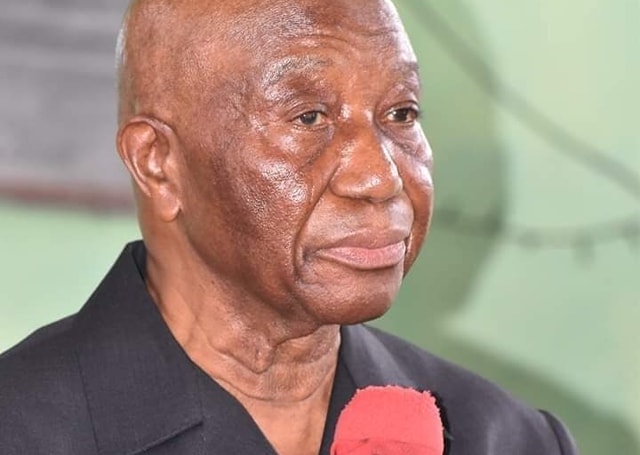Joseph Nyumah Boakai, according to research data, will be the oldest male opposition candidate in a presidential race in Liberia’s post-war political history in the 2023 elections. This according to elections and papulation data, is unprecedented and as a result, would set a new national record and bring in place a new political reality now known as the “Great-Grand Father Candidate.”
Political Analysts, Economists, Human Behavior Science Experts, Academics, and Expert Medical Doctors in Monrovia have all expressed deep concern about the decision of Joseph N. Boakai, now 78 (November 30, 1944) to contest in the general elections come 2023, especially in the face of individuals that are electable, vibrant, youthful, highly educated, domestically and internationally experienced and willing to uphold the greater good of all Liberians.
These pillows of Liberian consciousness, economic decisions making, and health safety argued that “Great-Grand Father candidate” like Joseph Boakai invokes and provokes more political chaos and constitutional crisis when leading political spaces or being elected to higher offices based on their susceptibility to manipulation, coercion, confusion and cognitive decline.
The expert on Human Behavior Science stated that, as a result of the cultural carte blanche “respect your elderly” no matter what, most voters in Liberia are predisposed to voting for “Great-Grand Father candidates” like Joseph N. Boakai out of “sympathy” and naive loyalty without real-world critical analysis.
The expert on Human Behavior Science concluded that this exposes Liberians’ best national interest and democratic continuity to greater risk and weakens national resilience because most “Great-Grand Father candidates” like Joseph N. Boakai’s mental condition, lack of political longevity, and leadership focus go against Liberians national security interest.
He also added that this is dangerous for Liberia’s post-war democracy, economy, and demographic equality. One political analyst of the University of Liberia, on condition of anonymity, stated that most Liberian voters are not inclined to the high-national risk of voting “Great-Grand Father candidates” in political offices.
In his recent September 2022 travel to Nimba County, while Joseph N. Boakai basked in the applause from the greeting crowd. He openly mistook his wife’s name for his daughter’s and on another occasion started to slip into sleep during a program. During his most important public appearance, he delivered the confusing, intermittently slurry, and occasionally indecipherable oration that has defined so many of his recent public appearances.
Despite deeply confusing, Liberian voters now have before them a candidate driven by pride, greed, entitlement, and ideology, a candidate born in the 1940s, before Monrovia had paved streets, before the United States entry into the Korean War (June 27, 1950) and the independence of India, Ivory Coast, Ghana, Botswana, Egypt, Kenya, Nigeria, Senegal, Sierra Leone, Israel, etc.
Amazingly, Joseph N. Boakai is historically older than any of the current candidates in the race at this very moment.
At the other end of the “appropriate age spectrum”, are candidates seeking to end the presidency of George Weah. According to recent elections data, they would set the record for bridging the gap between the over 75% of the population below the age of 40 and the population over the age of 70 years.
As a result of this, intellectual discourse houses in Monrovia and young Liberian voters are increasingly becoming very anxious and concerned about Joseph N. Boakai’s age.
Do they worry more about an older candidate than a younger one?
When polling was conducted on the question above in Liberia and, the youngest age at which a man/woman should become president of Liberia. Nearly three in 10, the top response, said between ages 36 to 68 years. In the same survey, they asked when a man/woman was too old for the presidency, and 27% (again, the top response) said between 70 and 85 years. Twenty-two percent said between 70 and 79 years, 6% between 71 and 75 years, and 3% older ages.
In questions asked in recent years, Liberians appear somewhat more comfortable with the idea of a relatively young president than with the idea of a relatively old one.






